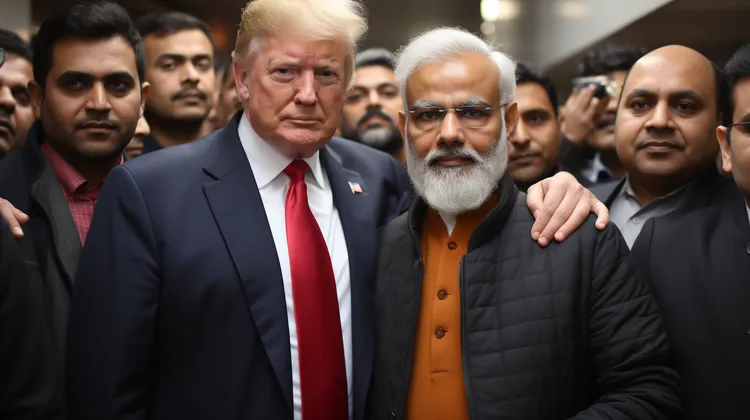
G20’s Global Crypto Rules: India’s Presidency Concludes
The Group of Twenty (G20), an international forum for governments and central bank governors from 19 countries and the European Union, is preparing to establish global cryptocurrency regulations as India concludes its presidential term. This move comes as governments around the world grapple with the rapidly evolving landscape of digital currencies and their potential impact on the global financial system.
India, which held the presidency of the G20 for the past year, has been at the forefront of discussions on cryptocurrency regulation. The country has been pushing for comprehensive rules that can address the potential risks associated with these digital assets, such as money laundering, terrorist financing, and consumer protection.
During its presidency, India has focused on initiating dialogue among G20 members to devise a common approach to crypto regulation. This has involved consultations with various stakeholders, including central banks, regulators, finance ministries, and technology companies. The goal is to foster a collaborative environment where countries can share their experiences and find common ground on key issues related to cryptocurrencies.
The G20 sees the need for an international framework that can establish clear guidelines for the regulation of digital currencies. Currently, different countries have taken varied approaches, ranging from outright bans to embracing cryptocurrencies as legal tender. This lack of uniformity hampers the growth of the sector and poses risks to both investors and the global financial system.
As India wraps up its presidency, it is expected to present a set of proposals to the G20 for consideration. These proposals will likely cover areas such as investor protection, tax compliance, anti-money laundering measures, and the prevention of illicit activities in the crypto space. They will also emphasize the importance of technological innovation and responsible regulation that can foster the growth of the digital asset industry.
The G20 is keen on striking the right balance between innovation and regulation. While it acknowledges the potential of cryptocurrencies and blockchain technology to revolutionize finance, it also recognizes the need to address the associated risks. The forum aims to create an environment that encourages innovation while safeguarding financial stability.
The global nature of cryptocurrencies necessitates international cooperation. The G20’s efforts to establish common regulations can serve as a model for other international bodies and countries seeking to navigate the fast-paced world of digital assets. By engaging in open dialogue and knowledge sharing, G20 members can learn from one another’s experiences and develop a coherent global framework that can foster innovation while mitigating risks.
These efforts by the G20 to crystalize global crypto rules come at a critical time for the industry. Cryptocurrencies have gained significant traction in recent years, with major financial institutions and corporations embracing digital assets as part of their investment portfolios. This increased adoption has also attracted the attention of regulators, who are concerned about potential market manipulation, fraud, and systemic risks.
With the G20 spearheading the development of global cryptocurrency regulations, it is hoped that these rules will provide clarity and certainty to market participants worldwide. This will pave the way for increased institutional involvement in the sector and facilitate the mainstream adoption of digital currencies.
It is important to strike a balance between regulation and stifling innovation. Excessive and overly strict regulations can hamper technological progress and discourage entrepreneurs from entering the space. Therefore, any global cryptocurrency framework should be nimble and responsive to the rapidly changing dynamics of the industry.
As India concludes its presidency, the G20 is set to crystalize global cryptocurrency rules. These regulations will provide much-needed clarity and consistency in an industry that has been marked by regulatory fragmentation. By fostering international cooperation and knowledge sharing, the G20 aims to strike a balance between innovation and regulation that can support the growth of the digital asset sector while safeguarding financial stability. The outcome of these global discussions will shape the future of cryptocurrencies and their role in the global financial system.
6 thoughts on “G20’s Global Crypto Rules: India’s Presidency Concludes”
Leave a Reply
You must be logged in to post a comment.
The G20’s efforts to establish global cryptocurrency regulations are timely. It’s crucial to address the risks and provide stability in the rapidly evolving digital asset landscape. 🕒💪
Global regulations will only stifle innovation and hinder the growth of the crypto industry. Hands off our digital assets!
It’s great to see the G20 taking the lead in global cryptocurrency regulation. This will boost confidence and attract more participants to the market. 🌍👍
It’s great to see the G20 focusing on dialogue and collaboration among its members. Together, we can find common ground and establish clear guidelines for the regulation of digital currencies. 🗣️🌍
I’m glad the G20 is emphasizing the importance of technological innovation. We need responsible regulation that encourages growth in the digital asset industry.
I’m glad to see the G20 emphasizing the importance of responsible regulation. This will ensure the growth of the digital asset industry while mitigating risks.